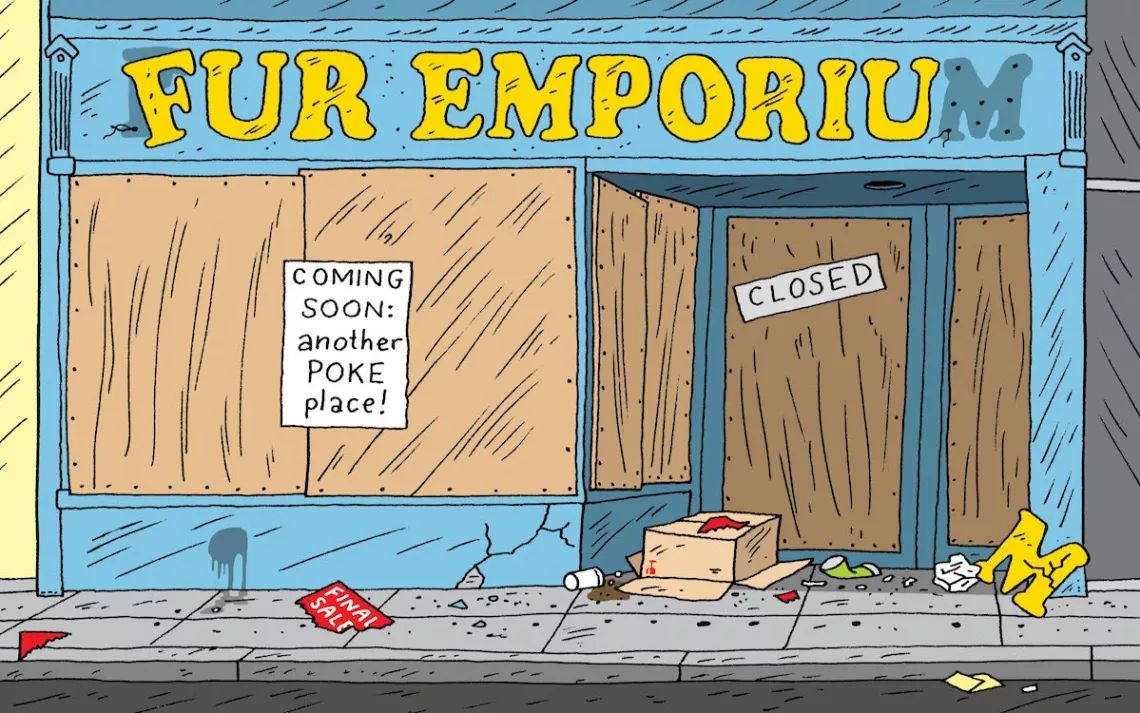ICYMI: San Francisco Bans Fur, Self-Driving Cars' First Victim, & More
A weekly roundup for busy people

Illustration by Peter Arkle
San Francisco bans the sale of fur.
A new survey finds that the Great Pacific Garbage Patch is four to 16 times larger than previously thought, is composed of between 45,000 and 129,000 tons of plastic debris, and is “increasing exponentially” in size.
A Southeast Alaska fisherman is arrested for illegally harvesting more than 7,500 pounds of sea cucumbers from the Whale Pass scientific preserve, an area that is supposed to be off limits to fishing.
At the instigation of Interior Secretary Ryan Zinke, the department’s Bureau of Ocean Energy Management holds an auction for drilling rights to more than 77 million acres in the Gulf of Mexico but receives bids for only 1 percent of the tracts offered.
New Zealand successfully eradicates mice—more than 200,000 of them—from subantarctic Antipodes Island in the interest of protecting its bird chicks, eggs, endemic insects, and rare plants.
GE is introducing the world’s first 12-megawatt wind turbine, a supergiant offshore model that will stand nearly as tall as New York City’s Chrysler Building.
The Bureau of Land Management asks employees to wear “vision cards” illustrated with a picture of a pump jack on their lapels.
Sudan, the world’s last male northern white rhinoceros, dies in Kenya at age 45.
Elaine Herzberg, 49, becomes the first victim of an autonomous vehicle when she is struck and killed in Tempe, Arizona, by a self-driving Uber SUV.
Officials in Coronado, California, say that they will impound dockless bicycles left in the public right-of-way after two hours and charge the bicycle-rental companies potentially hundreds of dollars to retrieve them.
It is learned that Russian hackers had infiltrated the U.S. electrical grid since at least March 2016 and had the ability to shut down power plants at will.
The free-market Competitive Enterprise Institute petitions to weaken energy-efficiency standards on residential dishwashers, claiming that they take too long to wash dishes.
 The Magazine of The Sierra Club
The Magazine of The Sierra Club



